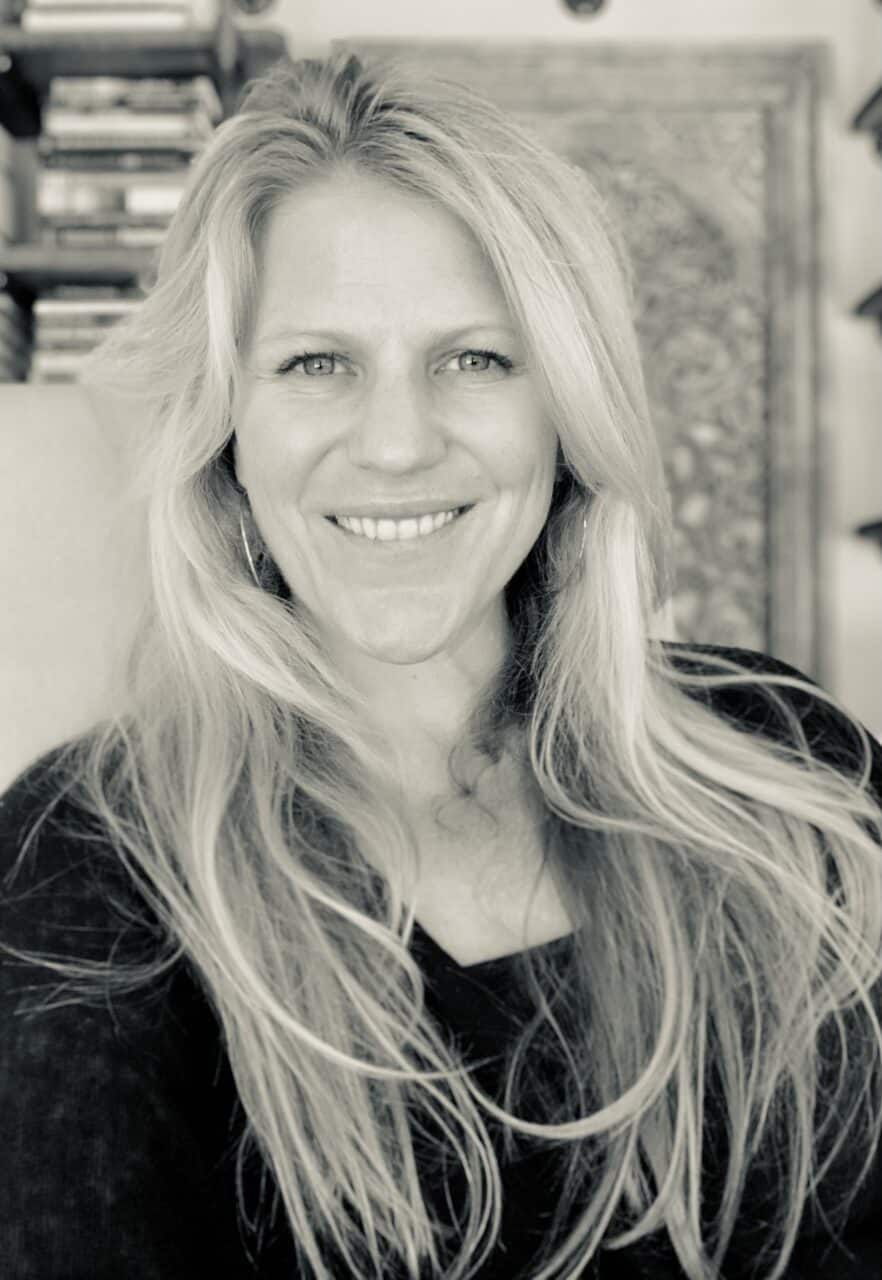
Our Executive Clinical Director, Dr. Chantelle Thomas, recently wrote a feature for TMJ4 in Milwaukee. Read below as she discusses her own experience with therapy, how to know if therapy is working for you, and tips for finding the right therapist.
By Dr. Chantelle Thomas, Executive Clinical Director at Windrose Recovery
I have had relationships with many therapists, at least ten to be more precise. As I set out to recount the various qualities and differences of these relationships it feels strangely like a dating catalogue. The therapist whose start was filled with an awkward lack of chemistry and fixated on my email address as a signifier of my identity and emotional underpinnings…for three sessions. The therapist who was overly collegial and whose sessions felt like a rather expensive latte chat. The therapist who I was convinced did not like me and then forgets to tell me she was retiring, the following week.
It should be noted, all of these therapists seemed to have thriving outpatient practices. So, what can be said about these interactions? In some instances they were vexing, unhelpful, and, if I’m honest, harmful. But could these therapists be competent and helpful for others? One thing I can say with confidence: they were not the right fit for me. The chemistry didn’t work. The connection was not there. What makes the therapy relationship work for people?
This question is undoubtedly complex and multifactorial in nature. As a therapist myself, I no doubt hold my own bias about the many potential merits and benefits of talking to someone when you are in need of support. And yet I have to acknowledge that some people can spend years in therapy without necessarily feeling or apparently doing better. How do we make sense of that as a helping profession? How do people know if therapy is actually working for them? Is it just a feeling?
People can grow attached to their therapists, but is that an actual sign of growth? Maybe the purpose of the therapeutic relationship is just to feel less alone and to feel heard and understood. Is the emphasis on “growth” in therapy an imposition that is endemic to a culture that is always seeking to be better?
It feels critically important for each individual to consider prior to the start of therapy the desired outcome of the relationship: unbiased support, words of affirmation, feelings of validation, reduction of specific symptom targets, enhancing psychological insight, feeling physically better, unresolved trauma, loss of a loved one, conflict at work, conflict with a partner, and/or changing a problematic pattern? The desired target of your work should very much inform the way you proceed and shape the therapy relationship to meet your needs.
Now more than ever people are deciding that they need help, undoubtedly amplified by navigating the unique challenges inherent to our pandemic landscape. A poll done by the American Psychological Association last November stated that thirty percent of therapists were seeing more clients overall. Some online platforms offering mental health counseling services have seen a rise in demand over fivefold between 2019 and 2020.
Our current channels for finding the right therapist can be confusing and circuitous. For those utilizing insurance you can be limited to “in-network” providers within your insurance panel, however, doing a web search of each of the providers listed can at least steer you to websites that provide more data on their approach, style, and therapeutic orientation. There are a growing number of online therapist databases such as Psychology Today, BetterHelp Counseling, and GoodTherapy that will provide therapist profiles that list their area of specialization and short essays about how they work.
A complicating factor in finding the right fit is that sometimes you, the consumer, often do not know exactly what the problem is or in more reductionistic terms, the diagnosis. This lack of clarity makes it very difficult to determine what kind of specialist you might need. Add to this, oftentimes therapists claim to specialize in many areas and the basis of their expertise can also widely vary.
There are at least 500 different therapies documented in practice (Lilienfeld & Arkowitz, 2012). Before you become completely overwhelmed with that statistic and impossibility of educating oneself on the range of options, there is a strong body of research that suggests that there are other factors that influence whether therapy is successful and effective (Wampold & Imel, 2015). In one particular model, the Contextual Model, these common factors include: 1) having a real and authentic relationship with your therapist, 2) setting clear expectations about the problem and the approach, and 3) making healthy changes. The gateway for all these factors to be effective requires a strong therapeutic alliance or, in other words, a great connection at the outset of the journey (Wampold, 2015).
From this perspective, therapy is not simply a passive process that just happens to you based on someone’s expertise. Rather, you are co-creating a relationship that will determine on some level how much benefit you receive. With that in mind, it helps to consider that you can actively evaluate this process as it unfolds. Remember that you can interview your therapist, particularly through the introductory phase of the relationship. If the basis of a successful partnership involves transparency, asking questions will directly shape your understanding of how this person thinks and plans to be of service to you. Allow yourself to pay attention to verbal and nonverbal cues. What does it feel like to be in the room with the therapist? Do you feel drawn to them in some way? Notice how your therapist responds to questions. Is there is a sense of openness or defensiveness? Many individuals all too often find themselves in the client chair and forget that they lose the ability to question whether this process is working for them. Here are some (hopefully) additional considerations for inquiry:
- After hearing from you, how do they conceptualize your treatment course?
- How would they describe their therapeutic style? (active/directive, client/patient-led, collaborative?)
- Have they themselves undergone the type of therapy they are offering?
- Are they trained in specific techniques that inform their approach in therapy? If so, what are those techniques and why did they choose this form of therapy? What happens if a particular technique does not resonate with you? Are there other options available?
- Will they ever involve other people in your therapy? Would they consider talking with people that are important to you to gain more perspective/insight?
- Will they give you homework? (Why or why not?)
- How often will they re-evaluate with you whether you are working towards your goal?
Outside of these questions, another good barometer of the therapeutic connection is how you feel about going to therapy. Do you look forward to your sessions? Do you feel that you talk in circles? Do you find yourself trying to “come up with things to say” for your sessions? Or contrarily, does your therapy feel like chatting with a friend? These could be indicators that your therapy needs a reboot. Due to the tremendous variability in training, personality, and backgrounds, it is very important to remember that finding the right fit in a therapist can take some work but can be well worth the investment.

Dr. Chantelle Thomas is Windrose Recovery’s Executive Clinical Director and a Clinical Psychologist specializing in addiction treatment, trauma, and health psychology. With her experience in trauma work, Dr. Thomas guides the clinical team in the comprehensive assessment and treatment of each guest. Dr. Thomas is also a certified biofeedback practitioner, providing clients with an added dimension of insight and discovery helping them better regulate and understand the psychological impact of stress and chronic trauma. Dr. Thomas began her career as the Program Director for a dual-diagnosis addiction and trauma treatment center in Malibu, California. After receiving her PhD in Clinical Psychology, she completed her internship and post-doctoral fellowship in Health and Rehabilitation Psychology at the University of Wisconsin School of Medicine and Mental Health. While there, she gained specialized expertise in medical-surgical consultation, trauma-informed therapy and chronic pain treatment. Through the University of Wisconsin’s School of Family Medicine, Dr. Thomas then joined Access Community Health Center as a Behavioral Health Consultant to primary care physicians where she innovated the development of a substance use disorder consultation clinic embedded within primary care. Her background in research-supported treatment modalities directly informs her ability to ensure the most effective interventions are incorporated into Windrose Recovery’s holistic programs.
If you’re looking for more information about Windrose Recovery’s family of treatment programs or are concerned about how the last year has affected someone close to you in their reliance on drugs or alcohol, reach out today to speak with our admissions team.
